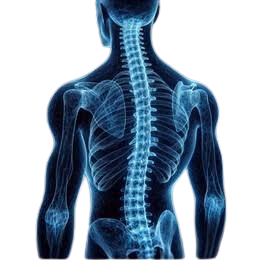Back and spine issues can be both uncomfortable and debilitating, affecting everything from your mobility to your overall quality of life. Many of us experience occasional back pain, but sometimes, the issue goes beyond ordinary discomfort. Knowing when to seek specialized care can make a significant difference in treatment outcomes and prevent minor problems from turning into major ones. Here are five signs that you should consider seeing a spine specialist.
 |
| spine |
1. Chronic Pain Lasting More Than Six Weeks
Most back pain resolves on its own within a few days or weeks, especially if it's related to muscle strain or a minor injury. However, if your pain persists for more than six weeks despite rest and over-the-counter remedies, it may be time to consult a spine specialist. Chronic back pain can indicate underlying issues such as herniated discs, spinal stenosis, or degenerative disc disease, all of which require professional evaluation and treatment.
2. Pain Radiating Down Your Leg or Arm
If you’re experiencing sharp, radiating pain that travels from your lower back down through your legs (often referred to as sciatica) or from your neck down your arm, this could be a sign of nerve compression. Conditions like herniated discs or spinal nerve irritation can cause this type of discomfort, and a spine specialist is best equipped to identify and treat the underlying cause to prevent permanent nerve damage.
3. Numbness, Tingling, or Weakness
Numbness, tingling, or weakness in your arms or legs may indicate that your spine is pressing on nearby nerves. This can be caused by conditions such as a pinched nerve, spinal stenosis, or a slipped disc. These symptoms shouldn't be ignored as they can lead to long-term damage if not addressed. A spine specialist can conduct imaging tests to pinpoint the issue and recommend a tailored treatment plan.
4. Loss of Bladder or Bowel Control
This symptom, though rare, is a medical emergency and could indicate a serious spinal condition known as cauda equina syndrome, where nerve roots at the lower end of the spinal cord become compressed. If you experience sudden loss of control over your bladder or bowels, seek immediate medical attention from a spine specialist. Delay in treatment could result in permanent damage or disability.
5. Limited Mobility or Stiffness
If you find yourself unable to move as freely as you once did, or if you notice persistent stiffness in your back, neck, or spine, it may be due to underlying spinal issues. Age-related conditions such as osteoarthritis or degenerative disc disease can cause this loss of flexibility and pain. Seeing a spine specialist can help address these symptoms before they progress further, allowing you to regain movement and improve your quality of life.
Conclusion
While occasional back pain can be managed at home, these signs indicate the need for professional evaluation and care. Spine specialists are trained to diagnose and treat a wide range of spinal conditions, providing you with the tools to improve your mobility, reduce pain, and prevent further complications. If you're experiencing any of the above symptoms, don’t hesitate to schedule a consultation with a spine specialist for a thorough evaluation and personalized treatment plan.
Taking timely action can help ensure your spine health remains strong, keeping you active and pain-free.








